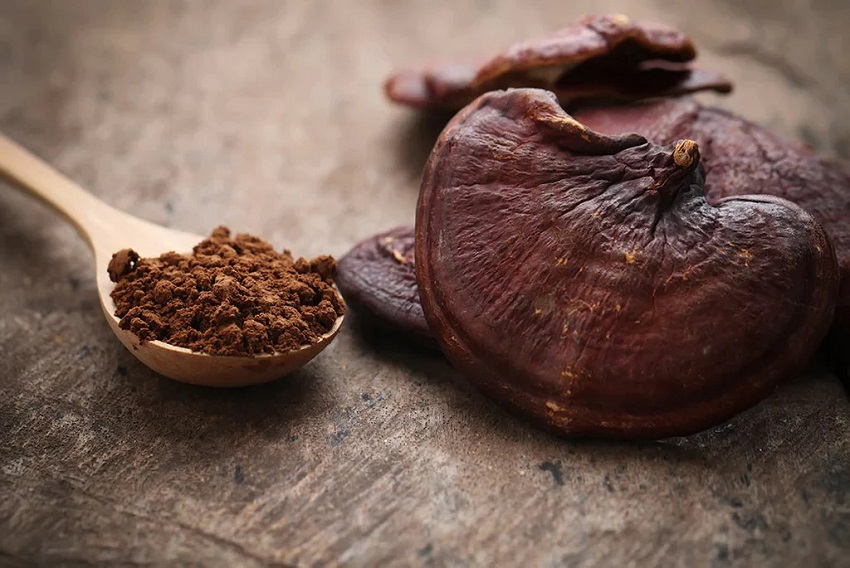
13 Jul Is Reishi a Vitamin?
In the world of supplements and natural remedies, Reishi has gained significant attention. Reishi, also known as Ganoderma lucidum, is a type of mushroom that has been used in traditional Chinese medicine for centuries. With its potential health benefits and adaptogenic properties, many people wonder if Reishi can be considered a vitamin. In this article, we will explore the nature of Reishi and its role in our overall well-being. This article is presented by https://depressiontrouble.com/
Understanding Reishi Mushroom
Reishi is a woody mushroom that has a distinctive appearance with a glossy red cap and a tough texture. It is primarily found in Asia and has been highly regarded in traditional medicine practices such as Chinese and Japanese herbalism. Reishi is often consumed in the form of extracts, powders, or teas.
The Nutritional Profile of Reishi
While Reishi mushroom is not classified as a vitamin, it does contain various bioactive compounds that contribute to its potential health benefits. Reishi mushrooms are rich in polysaccharides, triterpenoids, and antioxidants. These compounds are believed to support the immune system, reduce inflammation, and promote overall well-being.
Reishi and its Potential Health Benefits
- Immune System Support Reishi mushrooms have been traditionally used for their immune-boosting properties. The bioactive compounds found in Reishi, such as beta-glucans, stimulate the production of white blood cells and enhance immune function. Incorporating Reishi into your diet may help support a healthy immune system.
- Adaptogenic Effects Reishi is classified as an adaptogen, which means it may help the body adapt to physical and mental stressors. It is believed to support the body’s natural response to stress and promote a sense of calmness and relaxation.
- Anti-inflammatory Properties The triterpenoids present in Reishi mushrooms possess anti-inflammatory properties. They may help reduce inflammation in the body and alleviate symptoms of conditions such as arthritis and allergies.
Research on Reishi
Numerous scientific studies have been conducted to explore the potential health benefits of Reishi mushrooms. Although more research is needed, some studies suggest that Reishi may have positive effects on various aspects of health, including immune function, cardiovascular health, and liver protection.
For example, a study published in the journal “Food and Chemical Toxicology” found that Reishi extract exhibited antioxidant and anti-inflammatory activities in laboratory tests. Another study published in the “International Journal of Medicinal Mushrooms” reported that Reishi extract may have potential anti-cancer properties.
Incorporating Reishi into Your Routine
If you’re interested in trying Reishi as a dietary supplement, it’s important to choose a reputable brand that offers high-quality products. Look for supplements that contain standardized extracts to ensure consistent potency and purity. Follow the recommended dosage instructions provided by the manufacturer or consult a healthcare professional for personalized guidance.
Conclusion
While Reishi is not classified as a vitamin, it is a valuable natural remedy that offers potential health benefits. Its bioactive compounds, including polysaccharides and triterpenoids, contribute to its immune-boosting, adaptogenic, and anti-inflammatory properties. Incorporating Reishi into your routine may support overall well-being and help you adapt to stressors. However, it’s essential to consult a healthcare professional before starting any new supplement regimen.
FAQs (Frequently Asked Questions)
Q1. Can Reishi mushrooms replace vitamins?
A1. Reishi mushrooms cannot replace essential vitamins. While they offer unique health benefits, they should not be considered a substitute for a balanced diet and proper supplementation.
Q2. Can Reishi help with sleep disorders?
A2. Reishi mushrooms are known for their calming properties and may help promote better sleep. However, individual experiences may vary, and it’s best to consult a healthcare professional for personalized advice.
Q3. Are there any side effects of consuming Reishi mushrooms?
A3. Reishi mushrooms are generally safe for most people when consumed in moderation. However, some individuals may experience mild side effects such as upset stomach or allergic reactions. It’s advisable to start with a lower dosage and monitor your body’s response.
Q4. Can pregnant women or nursing mothers consume Reishi mushrooms?
A4. It is recommended that pregnant women and nursing mothers consult their healthcare providers before consuming Reishi mushrooms or any dietary supplements.
Q5. Where can I purchase Reishi mushroom supplements?
A5. Reishi mushroom supplements can be found in health food stores, pharmacies, and online retailers. Ensure to choose reputable brands that offer high-quality products.


No Comments